In the four years since finding stakes mysteriously implanted in the ground of their newly acquired farm, Neal LaFerriere and his family have worked as best they could with Mountain Valley Pipeline representatives to preserve the integrity of their organic farm. Having no choice but to sign an easement to allow the gas pipeline to go through their land, LaFerriere and his wife Beth have tried to hold MVP to the management plan it filed with a federal agency.
“We have always been willing to sit down at the table and meet with them to try to work out the issues,” LaFerriere said.
But even before clearing for construction started on the right-of-way on Monday, the effects of MVP’s actions on the family’s business have been catastrophic, he said, threatening the farm’s organic certification and bringing such financial hardship that their ownership of the farm is in jeopardy. And, already this week, a clumsy accident involving heavy machinery has resulted in a spill of contaminating fluids on the organic farm.
A passion for organic farming and medicinal plants led the LaFerrieres to purchase land in Summers County, W.Va., in 2015 and move there with three of their children to create Blackberry Springs Farm. A week after closing, they found a portion of the land staked out and had to do some research to find out what was going on. To their surprise, they discovered that a gas pipeline was routed through a portion of the property. The pipeline–the 300-mile Mountain Valley Pipeline–originates in West Virginia and continues through southwestern Virginia to the border of North Carolina.
They resisted signing an easement, but MVP threatened to use the power of eminent domain. “They were starting to say, we’ll just take your property and do it anyway,” LaFerriere said.
He describes persistent problems with MVP and with their attitude toward landowners in general. When the company got permission to clear trees from the right-of-way last year, he asked them for 72 hours notice so they could move some materials. They failed to give notice and felled trees on the materials, which were ruined, he said. MVP had to pay to replace them.
“It looks like they just don’t care, that they’re in such a rush to get this done, they’ll just run over anybody and ignore any rule and not have any common courtesy to try to work with the landowner,” he said.
Far worse was to come for the LaFerriere farm. One day last September, he, his wife, four of their children and an intern were harvesting ginseng about a quarter mile away from the right-of-way, when suddenly, a helicopter flew overhead. Little blue pellets started raining down on them, and they were struck on the face and head, resulting in contusions and lacerations on his two daughters’ faces. He called MVP, but the helicopter continued to make several more passes over the farm.
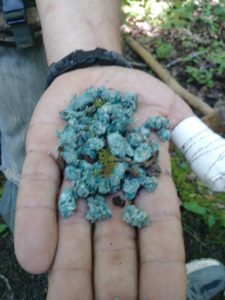
The blue pellets were an erosion control product called Earth Guard Edge. He also called state agencies in addition to MVP, but they were unwilling to hold the pipeline company accountable, he said. Someone at the Federal Energy Regulatory Commission (FERC) called him back 8 days later, and a few days after that, FERC and MVP representatives finally came to the farm bringing MVP’s environmental specialist. The specialist said there was nothing they could do to mitigate the damage. Once the pellet gets wet, it gets into the soil.
“We’re going to make sure this never happens again,” LaFerriere said MVP land agents told him. But the very next morning, a helicopter again flew over, showering more pellets on the remainder of the property. LaFerriere hired an attorney to file a cease-and-desist letter, and only then did the bombardment on his farm stop. It continued on neighboring property.
Earth Guard Edge contains acrylamide, a carcinogen. Because the soil is now contaminated with it, the LaFerrieres stopped selling organic products, fearing someone would get sick. They have “shifted focus a little bit,” but the loss of business has put the farm in jeopardy. The LaFerrieres entered into litigation with MVP over the erosion control pellets in March of this year.
“It’s devastated us. It has hurt us in ways that it’s hard to put into words,” he said.
After she was battered with pellets, the LaFerrieres’ 8-year-old daughter began to have recurring nightmares that the pipeline would explode and kill her family.
“It goes beyond the financial. This property was our hope, our dream, our future, our children’s future. With the way that MVP has just run over the top of us, we don’t even know if we can call this place home any more,” LaFerriere said.
On Monday, MVP workers brought heavy construction equipment to begin clearing, trenching and laying the pipeline through the property. After receiving notification from MVP that they were going to begin construction on July 12, LaFerriere sent an email to MVP to cease and desist work on his property–which it ignored. Workers came onto the farm without “my permission, my inclusion or consultation,” he said.
MVP is required to adhere to an Organic Management Plan it filed with FERC, but LaFerriere said they still hadn’t provided him with any information with regard to its implementation. He hasn’t been allowed to speak with the expert from the International Organic Inspectors Association hired by MVP–who has been out to the property twice–and he still hasn’t received a complete list of materials that MVP would be using on the farm, he says.
MVP also wouldn’t tell him much about the pale green coating on the 42“ diameter pipeline. His concern about the coating degrading and contaminating the soil and water is shared by FERC, which last week sent a letter to MVP asking about its safety after two years of sitting in the sun.
Natalie Cox, Communications Director for EQT Midstream Partners–the lead partner of the Mountain Valley Pipeline joint venture–claims that MVP did provide LaFerriere’s attorney with a site-specific implementation plan for his property as well as an initial list of materials reviewed by the project’s organic consultant. MVP set up a cleaning station outside of an “organic buffer,” she said, and MVP has retained an organic consultant to train workers and environmental inspectors and monitor construction activities and remediation.
LaFerriere said that no monitors or inspectors have been introduced to them, and he has not seen anyone on site that he can identify as a organically trained monitor.
Construction workers started out “grubbing”—removing trees and brush from the right-of-way. He was worried because the workers were using air compressors to decontaminate equipment instead of a wash station, and contaminates were being blown into the air and drifting onto the farm’s organic soil.
Laferriere believed MVP wasn’t honoring its Organic Management plan Requirements, so he sent a second cease-and-desist email on Tuesday. Later that morning, MVP representatives agreed to meet with him at 1 pm. At the last minute, they cancelled.
Only an hour later, an excavator operating on the right-of-way tipped over onto its side. The excavator was on relatively flat terrain, not on a steep hill or slope, LaFerriere said. Fluids spilled out, and he counted nearly 20 workers bagging soil that was contaminated. He didn’t observe any barrier or protective silt socks put in place to contain the spill.
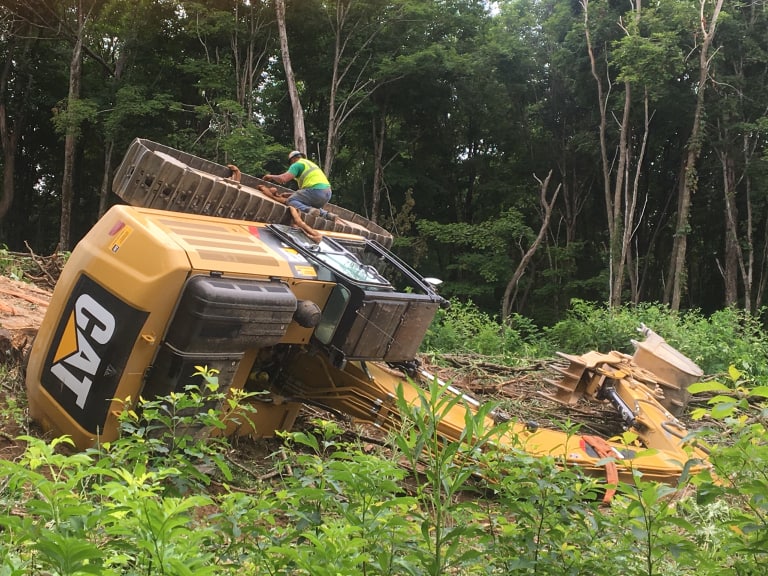
The driver was able to exit the excavator and walk away with the assistance of co-workers. (The driver is employed by a contractor of Mountain Valley Pipeline, and EQT Midstream Partners was unable to release any information about his medical condition.)
Problems with MVP construction have not been limited to Blackberry Springs Farm. MVP was cited with more than 300 violations by the end of 2018 alone. As a consequence, many of the pipeline’s permits have been revoked. FERC has approved 125 requests by MVP to deviate from its original work plan, and most appear to be related to efforts to correct erosion events.
“We have witnessed sediment-laden water flowing off the right-of-way and into adjacent streams, roads buried in up to a foot of mud, and even one erosion event so extreme that two segments of steel pipe – each weighing just over 13,000 pounds – skidded hundreds of feet from a worksite and onto private property,” reads an op-ed in the Virginia Mercury this week.
After heavy rains in June, at least a dozen timber mats from MVP construction sites washed down the Blackwater River into Smith Mountain Lake. A member of the local Board of Supervisors told the Roanoke Times that there could have been “a catastrophe” if a wooden plank had hit a boat.
Virginia attorney general Mark Herring filed a civil lawsuit against MVP last October, alleging that it violated numerous environmental laws by failing to control storm water and sediment run-off. Herring, however, has refused to issue a stop-work order, and construction of the pipeline continues.
More delays have been caused by protesters, who have repeatedly delayed tree-clearing on the route and pipeline construction with blockades, obstruction of easements, equipment lock-downs and tree-sits lasting for months. Multiple arrests have not deterred them.
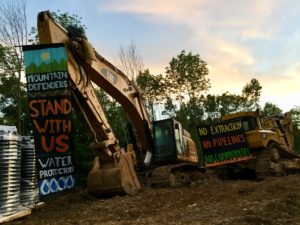
MVP asserts that permit issues will soon be resolved, and the pipeline will go into operation later this year.
Virginians and West Virginians affected by pipeline construction deeply grieve the defilement of their land by MVP. “The heartbreak of the people that have lived here for generations, to see their land taken against their will, to see it chopped up, split up, divided, tore up,“ LaFerriere said.
“It makes you question the sanity of the entire American Dream, because ultimately, isn’t that all our dream, is to own this one place that we can call our own, that is our sanctuary, that is our base of strength, where we have a foundation not only for ourselves but for our family? And then they come in here and rip that out.”
Feature photo courtesy of Preserve Floyd


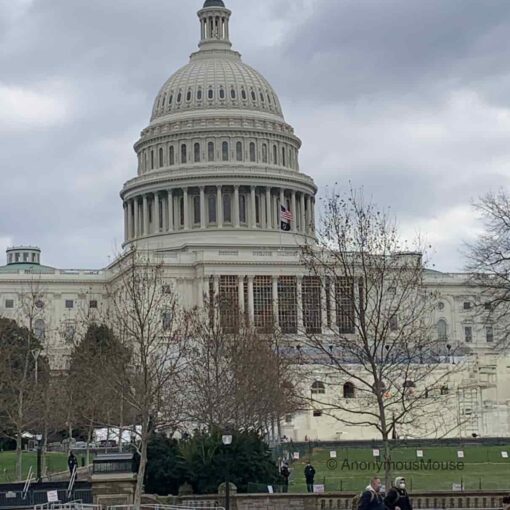
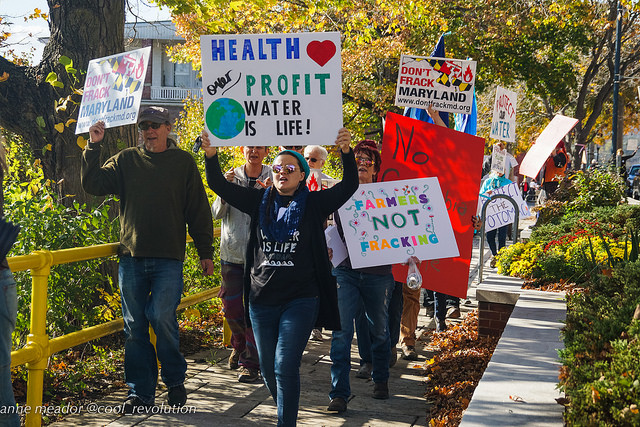

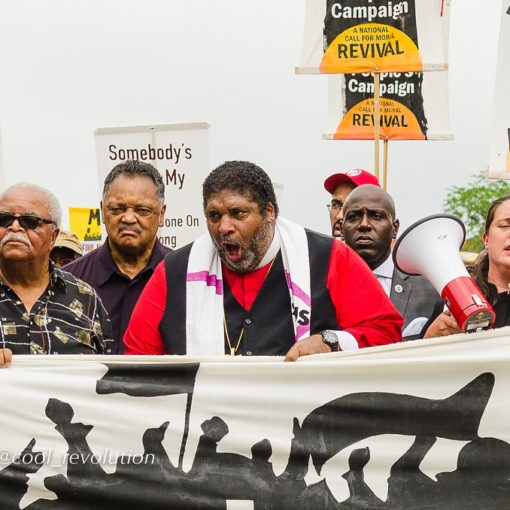
One thought on “Organic Farm in W.Va. Imperiled by Gas Pipeline Construction”